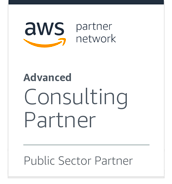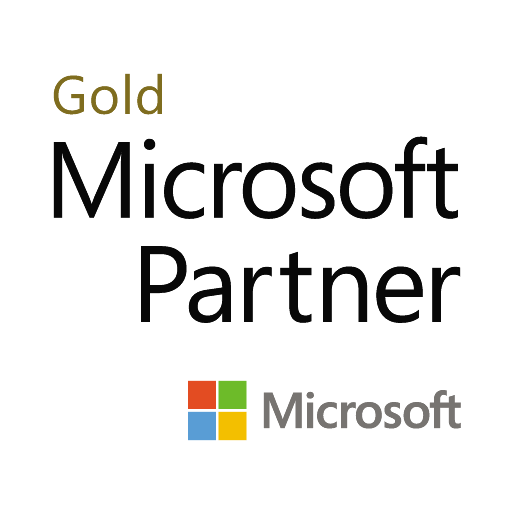DevSecOps
DevSecOps integrates security practices into the DevOps workflow, enabling organizations to build, deploy, and operate secure software at speed and scale. Our DevSecOps solutions help organizations embed security throughout the software development lifecycle, from code commit to production deployment, fostering a culture of security, collaboration, and continuous improvement.
Help enable extreme automation
What is DevSecOps?
DevSecOps, a portmanteau of Development, Security, and Operations, encapsulates a holistic approach to software development that emphasizes the seamless integration of security practices throughout the entire development lifecycle. In this methodology, 'Dev' refers to the development phase, where software is created, 'Sec' represents security, highlighting the incorporation of security measures and best practices at every stage, and 'Ops' symbolizes operations, encompassing the deployment, management, and maintenance of software in production environments. By bridging the traditionally siloed domains of development, security, and operations, DevSecOps aims to promote collaboration, automation, and continuous improvement, ultimately resulting in the delivery of secure, reliable, and resilient software products.
Understanding the DevSecOps Philosophy
DevSecOps, short for Development, Security, and Operations, represents a cultural shift towards integrating security practices into the software development and operations processes from the outset. Unlike traditional approaches where security is often treated as an afterthought, DevSecOps emphasizes collaboration, automation, and continuous integration of security throughout the entire software development lifecycle (SDLC).
Key Principles of DevSecOps Implementation
DevSecOps implementation revolves around several key principles aimed at fostering a security-first mindset and ensuring the delivery of secure, reliable, and compliant software at speed. These principles include shifting security left in the SDLC, automating security testing and compliance checks, fostering a culture of shared responsibility for security, and integrating security into the CI/CD pipeline to enable rapid feedback and remediation.
Benefits of Embracing DevSecOps Practices
Embracing DevSecOps practices offers numerous benefits for organizations looking to enhance their security posture, accelerate software delivery, and improve overall business agility. By embedding security into every stage of the SDLC, organizations can identify and remediate security vulnerabilities earlier in the development process, reduce security risks, improve regulatory compliance, enhance collaboration between development, security, and operations teams, and ultimately deliver more secure and resilient software products to market faster.
Secure Code Development
Enabling secure code development involves implementing practices and processes throughout the software development lifecycle to mitigate security risks and vulnerabilities. Here are the steps involved, along with how Takumi staff can help
Request secure code development supportTraining and Integration
Provide comprehensive training on secure coding practices while integrating security considerations into the software development lifecycle (SDLC). Takumi staff can conduct training sessions and assist in embedding security checkpoints within the SDLC to ensure secure coding from inception to deployment
Continuous Improvement and Incident Response
Foster a culture of continuous improvement while developing robust incident response plans to address security incidents promptly. Takumi staff can facilitate retrospectives, conduct post-incident reviews, and recommend enhancements to strengthen the security posture of the development team.
Code Review and Testing
Implement rigorous code review practices alongside thorough security testing, including static analysis, penetration testing, and vulnerability scanning. Takumi staff can facilitate code reviews, configure testing tools, and analyze results to identify and address security vulnerabilities effectively.
Standards Enforcement and Dependency Management
Establish and enforce secure coding standards while managing dependencies and third-party libraries for known vulnerabilities. Takumi staff can help define coding standards, provide guidance on dependency management, and ensure adherence to best practices throughout the development process.
Automated Security Testing - Toolchain Integration
DevSecOps Toolchain Integration involves seamlessly incorporating a suite of specialized tools and technologies into the software development lifecycle to enhance security practices at every stage. This integration facilitates the selection, configuration, and integration of various DevSecOps tools such as static application security testing (SAST), dynamic application security testing (DAST), and security information and event management (SIEM) solutions. By enabling end-to-end security automation and orchestration, organizations can streamline their development processes while ensuring robust security measures are implemented throughout, from code development to production deployment.
Request your quoteContinuous Security Testing Automation
Implement automated security testing throughout the software development lifecycle with our DevSecOps solutions. Our continuous security testing automation services integrate security testing tools such as static application security testing (SAST), dynamic application security testing (DAST), and software composition analysis (SCA) into your CI/CD pipeline, enabling automated vulnerability scanning and code analysis to identify security issues early in the development process and facilitate rapid remediation.
Infrastructure as Code (IaC) Security Automation
Automate security controls and compliance checks for infrastructure as code (IaC) with our DevSecOps solutions. Our IaC security automation services leverage tools and technologies such as infrastructure security as code frameworks, policy as code (PaC), and automated compliance scanning to enforce security best practices, configuration standards, and compliance requirements for infrastructure provisioning and management, ensuring secure and compliant deployments in cloud and hybrid environments.
Container Security Orchestration
Orchestrate container security throughout the container lifecycle with our DevSecOps solutions. Our container security orchestration services integrate security controls and best practices into the container development, deployment, and runtime environments, leveraging container security tools such as image scanning, runtime protection, and vulnerability management to ensure secure and compliant containerized applications in Kubernetes, Docker, and other container platforms.
Our partners
Google Cloud, Amazon AWS, Microsoft Azure, and Kubernetes trust us to implement their technologies in for our clients.



